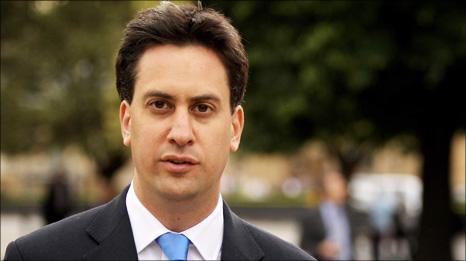David Miliband criticises brother's election approach
- Published
David Miliband: "The election result was devastating"
Ex-Foreign Secretary David Miliband has criticised his brother Ed's leadership of the Labour Party, saying voters "did not want what was being offered".
He told the BBC the leadership had allowed itself to be portrayed as "moving backwards".
There was "absolutely no point" blaming voters for Labour's defeat, he added.
But Mr Miliband, who was beaten to the job of leader by his younger sibling in 2010, also said the two of them would "remain brothers for life".
He ruled himself out of becoming the party's next leader, although that would not be possible anyway as he is not an MP.
Leadership election
Mr Miliband quit parliament in 2013 to work for the International Rescue Committee charity in New York.
Ed Miliband resigned as Labour leader in the aftermath of the general election, which left his party on 232 seats, with the Conservatives securing an overall majority.
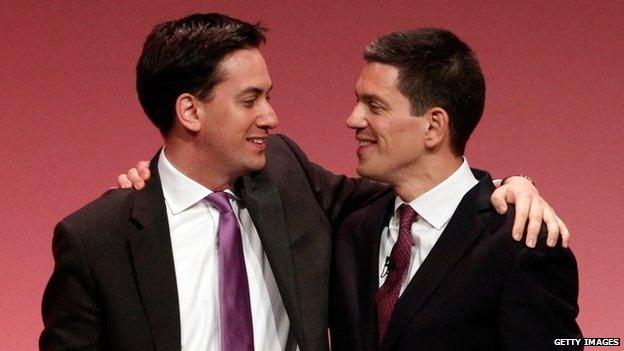
David Miliband (r) left UK politics after losing the Labour leadership battle to his brother
His approach was criticised at the weekend by former Business Secretary Lord Mandelson, while some of the MPs tipped to replace him have spoken of the need to appeal to "aspirational" voters.
Speaking to the BBC's Nick Bryant in New York, David Miliband said there was "absolutely no point in blaming the electorate" for the election result.
"They didn't want what was being offered," he said.
'Rewind button'
He said his brother and, before him, former Labour Prime Minister Gordon Brown had "allowed themselves to be portrayed as moving backwards from the principles of aspiration and inclusion that are the absolute heart of any successful progressive political project".
He added: "Either we build on what Labour achieved after 1997 and we have a chance to succeed, or we abandon it and we fail."
But he said he remained in touch with his younger brother, adding that "many of the attacks on Ed were unpleasant and unfair and I think he dealt with them with enormous dignity and with courage… I've always said you remain brothers for life and that's something that has to be kept".
Asked whether Labour would be better off if he had been chosen as leader, Mr Miliband said there was "no point in trying to press the rewind button in life".
'Commentary'
BBC political correspondent Iain Watson said Mr Miliband's remarks about aspiration suggested he thought the leadership was "obsessed with taking money from those at the top" but that it "didn't have enough to say about those in the middle".
Meanwhile, Labour's acting leader, Harriet Harman, urged the party's MPs to use their media appearances to "land one on the Tories in every interview you do".
BBC political correspondent Chris Mason said Ms Harman used her appearance before the Parliamentary Labour Party to express frustration at some of the "commentary" from some party figures following the election.
"We do have to be truthful about what happened, but not step over the line and cause further problems," she said.
The meeting discussed the possible timetable for electing a new leader.
Names forward
Ms Harman said there were "balanced arguments" over whether a short or long campaign would be best, and that the National Executive Committee, which will meet on Wednesday at noon, would make the final decision.
Liz Kendall, shadow care minister, has said she wants to stand as party leader.
Yvette Cooper, Andy Burnham and Chuka Umunna are also expected to join the race - but backbencher Dan Jarvis has ruled himself out.
Labour MP Stella Creasy said she would be "open to the question" of putting her name forward for the deputy leadership of the party.
Speaking on Newsnight, she ruled out standing as leader but said she would "want to hear what people have to say" about the future direction of the party.
Tom Watson, the party's former deputy chairman, has also said he will consider running for deputy, and shadow Commons leader Angela Eagle is believed to be considering putting herself forward.
- Published10 May 2015
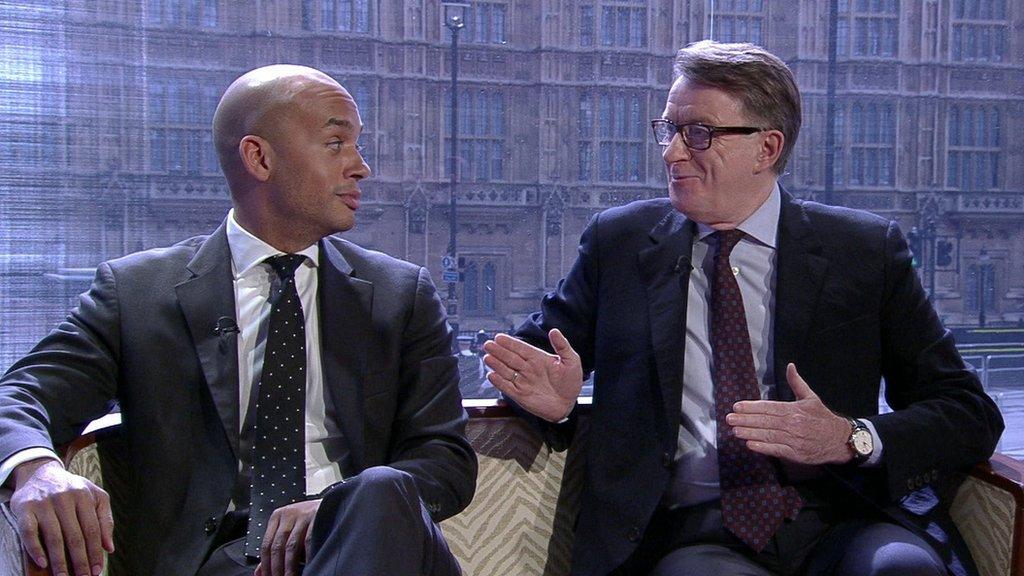
- Published11 May 2015
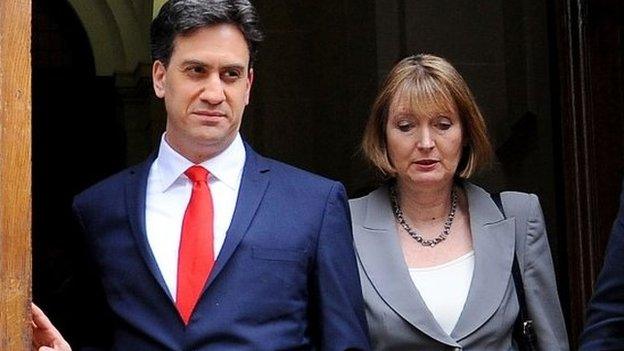
- Published11 May 2015
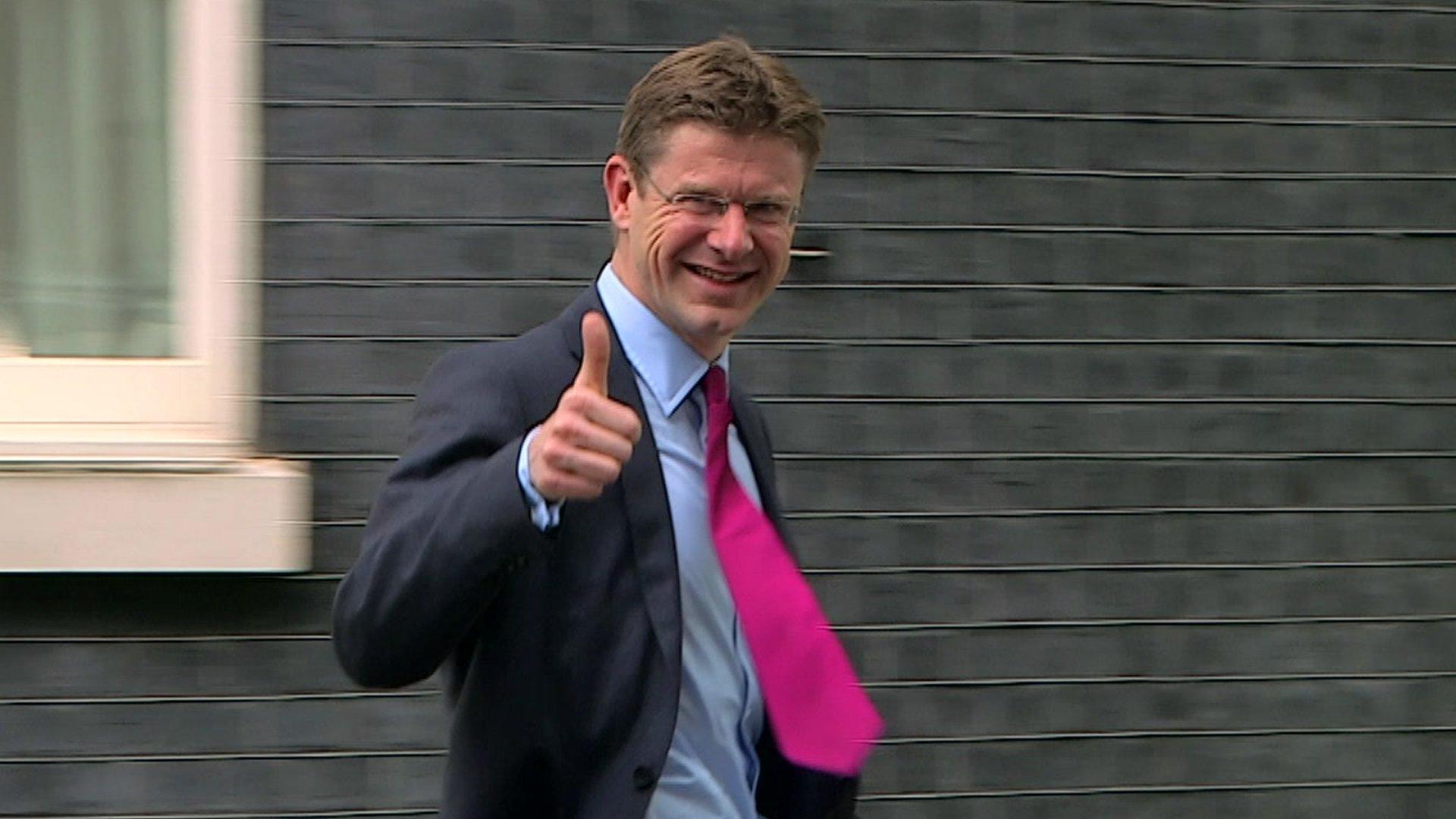
- Published8 May 2015
